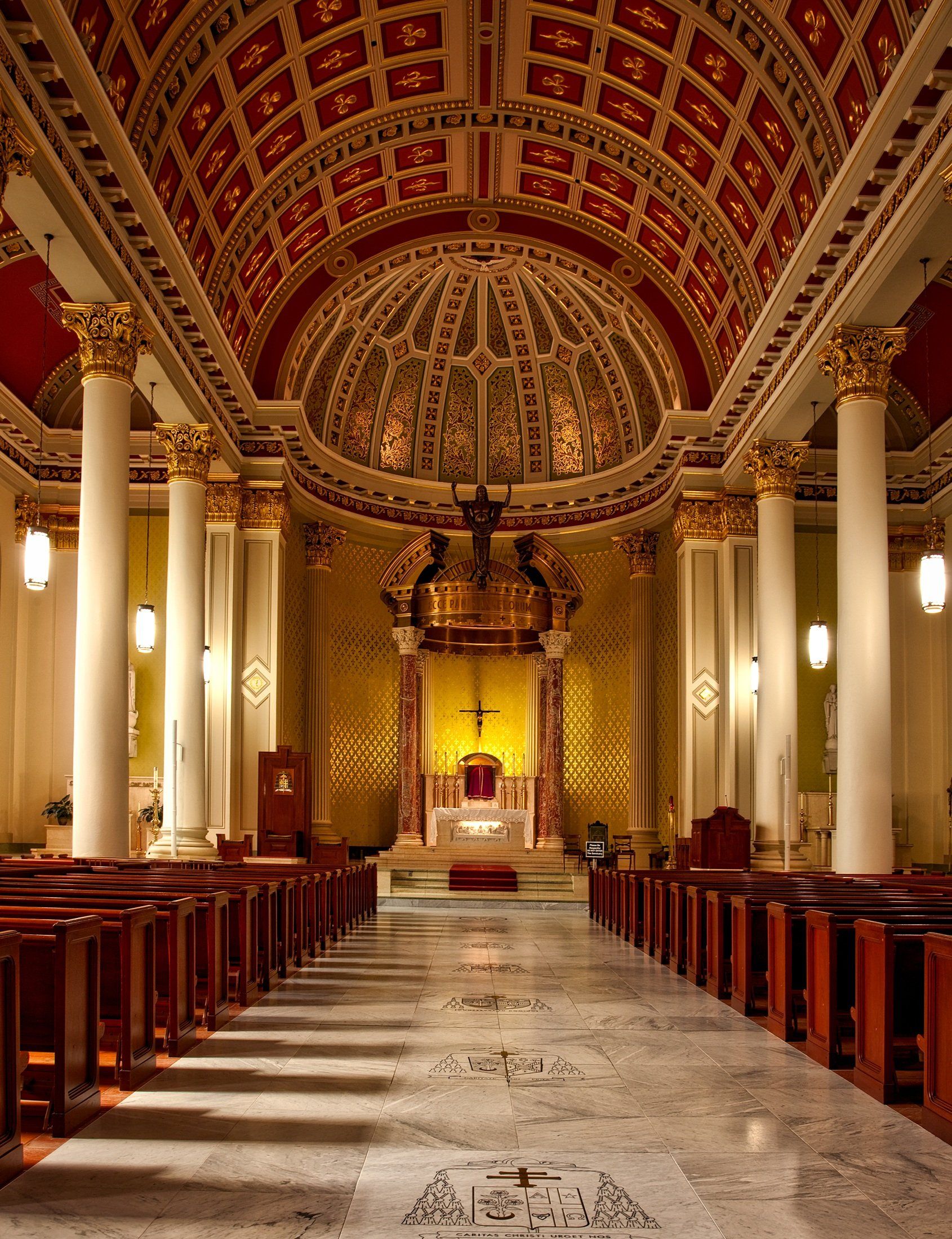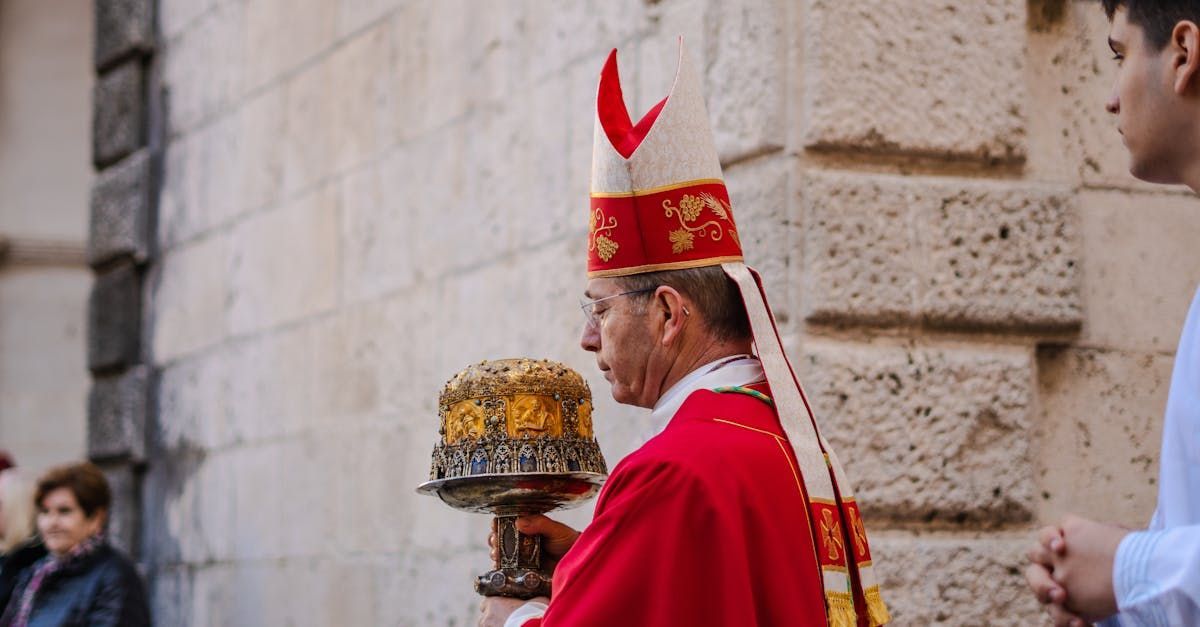La ley: por la salvación del hombre
Nuestras lecturas de hoy giran en torno al concepto de derecho. En la fe judía, guardar la ley era de suma importancia. En total, había seiscientas trece leyes que regulaban todo, desde el sacrificio ritual hasta la dieta, desde la ropa hasta cómo lavarse. Además de todas estas leyes estaban las prácticas consuetudinarias que se mantuvieron al pasarlas de generación en generación. Muchas de las enseñanzas de Nuestro Señor parecen contradecir las normas establecidas en su tiempo. Pero en nuestro Evangelio aclara que sus discípulos guardarán la ley.
En la Iglesia Católica también tenemos una ley. Históricamente, las leyes de la Iglesia se guardaron en diversas fuentes y documentos. Fue solo hasta hace poco que la Iglesia compiló todas sus leyes en un solo documento. Se llama Código de Derecho Canónico, y su primera publicación fue en mil novecientos diecisiete. Regula la creación de diócesis, la celebración de los sacramentos y los juicios eclesiásticos para perseguir alguna causa de justicia en la Iglesia.
La palabra «ley», sin embargo, al principio puede dejar un mal sabor de boca. En nuestra sociedad moderna, el individualismo y una «libertad de pizarra en blanco» se han apoderado de nuestra interacción con la realidad. El posmodernismo ha introducido la idea de que mientras no lastime a nadie, puedo realizar cualquier actividad que desee. La ley, como los modernistas quieren que pensemos, nos restringe y, por lo tanto, es mala. Sin embargo, el derecho es lo que ordena las relaciones humanas y las sociedades. Fomenta la justicia y la rectitud. Mantiene al hombre del peligro.
En la famosa obra de teatro realizada a modo de película sobre Santo Tomás Moore, A Man for All Seasons, hay un joven llamado William Roper que aspira a ascender en la escala política. Toma atajos y no tiene directores. Moore lo reconforta en una escena sobre la importancia de las leyes en la sociedad. Roper quiere violar la ley para obtener un resultado determinado. Thomas Moore afirma que incluso el diablo debe seguir la ley que Dios le impone. Roper responde: «¡Entonces, ahora le das al diablo el beneficio de la ley!»
Moore: «¡Sí! ¿Qué harías? ¿Abrir un gran camino a través de la ley para perseguir al diablo?»
Roper: «¡Sí, reduciría todas las leyes en Inglaterra para hacer eso!»
Sir Thomas More da esta conmovedora respuesta: «¿Oh? Y cuando la última ley fuera derogada, y el Diablo se volviera contra ti, ¿dónde te esconderías, Roper, siendo todas las leyes planas? Este país está sembrado de leyes, de costa a costa, ¡las leyes del hombre, no las de Dios! Y si las cortas — y eres el hombre justo para hacerlo — ¿realmente crees que podrías mantenerte erguido en los vientos que soplarían entonces? ¡Si, quiero dar al Diablo el beneficio de la ley, por mi propia seguridad!»
Thomas Moore adopta este enfoque porque entiende que las leyes mantienen el orden correcto entre los individuos. Con razón sabe que la ley es instrumento de justicia y concede a cada uno lo que le debe. Antes del Día de Acción de Gracias, me tomé unos días para visitar a un amigo que se mudó a Florida. Mientras estuve allí, hicimos una excursión de un día al Parque Nacional Everglades. En cada comienzo de sendero, había señales de no acercarse a los caimanes. Bromeé con mi amigo: «¡Nadie me dirá qué hacer!» Sin embargo, esa regla no fue colocada allí para restringir mi libertad. Estaba allí para salvaguardar mi vida.
En una familia, vemos una realidad similar. Los padres establecen reglas; los padres establecen la ley del hogar. Se establecen reglas para que las relaciones en la familia estén ordenadas hacia el florecimiento individual y el beneficio de toda la unidad familiar. Actuar dentro de estos límites y leyes establecidas significa que los niños tienen el beneficio de recibir el cuidado y la protección de los padres. Es cuando un miembro de la familia elude el código de la familia que se lastima, lesiona o victimiza. Y hay una prueba simple para esto. Cuando un niño se lastima, ¿qué es lo primero que se le viene a la cabeza a los padres? «¡Te dije que no hicieras eso!»
El reino de Dios es una sociedad, un grupo de individuos ordenados hacia un fin. Por lo tanto, no puede existir sin leyes que lo gobiernen. Algunas de estas son leyes de Dios que se dan en las Escrituras ya través del patrimonio moral de la Iglesia. Otras leyes son hechas por los hombres para llevar a cabo la actividad práctica de la Iglesia en la tierra. Por ejemplo, existen leyes que rigen las habilidades de los diáconos, sacerdotes y obispos. Esas leyes se reciben principalmente de Dios porque es él quien otorga este don a su Iglesia. Sin embargo, las leyes que rigen a los arzobispos, monseñores, cardenales y secretarios son todas leyes humanas que se pueden reformar. Mientras que diácono-sacerdote-obispo es un ordenamiento divino de sus ministros, monseñor-cardenal-secretario es una invención humana, aunque antigua, que ayuda a ordenar los asuntos de la Iglesia en el cumplimiento de su misión.
Ya sea que estemos hablando de los mandamientos de Dios, los preceptos de la Iglesia o las reglas que gobiernan la jerarquía de la Iglesia, no estamos tratando con leyes ordinarias. Ya sea que la ley de la Iglesia esté salvaguardando lo que es sagrado o proporcionando un beneficio a los fieles laicos, ella no está ordenando el Cuerpo de Cristo a algún reino terrenal. Al final del Código de Derecho Canónico, hay una norma rectora muy importante. El último canon enumerado dice: salus animarum lex suprema esto — «La ley suprema de la Iglesia es la salvación de las almas». Eso significa que cada mandato para los cristianos no es para restringirnos, sino para indicarnos la dirección del cielo. Mantiene nuestra brújula apuntando al norte.
Nuestro Señor no ha venido a abolir la ley, sino a infundir su significado en nuestros corazones. Muchas de las costumbres y leyes dietéticas han sido derogadas. Estas son las leyes que hicieron a Israel «diferente a todas las demás naciones». Esa era la palabra para santidad en hebreo y en el Antiguo Testamento. También se tradujo como «separado». Muchas de las leyes sobre dónde podían viajar, qué vestían y qué podían comer se instituyeron para que los judíos vivieran de manera diferente a los no creyentes. Estos ya no son parte del pacto. Nuestro Señor quiere que la ley forme nuestros corazones. Por eso dice: «Ustedes han oído decirlo que…, pero yo les lo digo…». Habla de la pureza que debe tener nuestro corazón, la generosidad con que debemos dar, el esfuerzo que debemos hacer para resistir la tentación. Considerándolo todo, la ley de Dios nos es dada para ayudarnos en la perfección. También ordena nuestra vida en común como Cuerpo visible de Cristo.
Este es el tema central de nuestra lección de Eclesiástico. Los mandamientos conducen a la salvación. Ante cada persona se encuentra una elección: la vida o la muerte. La ley de Dios conduce a la vida eterna. Apartarse de su ley es elegir el castigo eterno y la separación eterna de él. Nuestro Salmo también proclama la belleza de los mandamientos de Dios. Los que los guardan son irreprensibles y Dios los bendecirá con vida eterna. En el mismo Salmo, pero no incluido en el Salmo Responsorial de esta Misa, David escribe «La ley del Señor es perfecta, que da vida al alma».
Cuando la ley de Dios y de su Iglesia es interiorizada, cuando forma nuestro corazón para hacer el bien, es cuando encontramos facilidad para hacer lo que es recto y justo a los ojos de Dios. Nos permite medir la bondad de los reinos y leyes terrenales sin perder la paz. La disciplina que requiere la ley de Dios trae satisfacción a lo largo de la vida porque sabemos que el dador de la ley divina nutrirá y protegerá las almas de sus fieles. Mediante la obediencia a las ordenanzas de Dios, que todos podamos avanzar juntos en paz y armonía hacia la vida eterna. Y si alguna vez nos encontramos en desacuerdo con la ley de Dios, esforcémonos por cambiar nuestros corazones, no por quejarnos de sus preceptos.
Pastor's Ponderings












